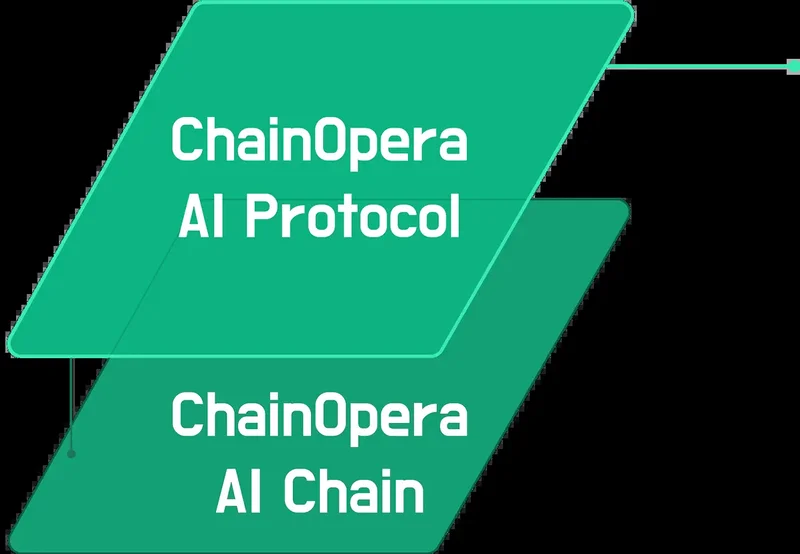Every few weeks, I see a chart that makes me want to throw my laptop out the window. This week, it’s ChainOpera AI ($COAI). A 54% jump in 24 hours. A 512% surge another day. A 30-day gain of over 2,200%. The numbers are so absurd they feel like a typo from a Nigerian prince email. And everyone, from the commissioned shills to the wide-eyed moon-boys, is trying to slap a coherent narrative on this absolute chaos.
They want you to believe this is all part of some grand strategy. One piece of sponsored content, The Secret Behind ChainOpera AI’s Explosive Success: Strategic Cycle Timing and a Fully Diluted Valuation Beyond $4 Billion, called it a "phenomenal outbreak" that was "not accidental." It was, they claimed, the result of "precise timing, solid technology, and a deep understanding of the market pulse."
Give me a break.
The real reasons trotted out for these price swings are a grab-bag of whatever tech news was trending that day. One day, COAI is soaring because OpenAI released a ChatGPT browser. The next, it’s because AMD made a deal with OpenAI. It also surged because it got listed on Bybit, then Aster. It’s like throwing spaghetti at a wall and calling whatever sticks a "strategic catalyst." This is classic crypto behavior. No, 'classic' is too nice—this is a five-alarm dumpster fire of narrative-chasing, where the underlying "tech" is just an excuse to slap a ticker symbol on a slot machine.
Let's cut through the noise and look at the one number that actually matters. It’s not the 2,200% gain or the $6 billion trading day. It’s this: the top 100 wallets control over 94% of all COAI tokens.
Read that again. Ninety-four percent.

This isn't an investment; it's an invitation to be someone else's exit liquidity. It's like sitting down at a poker table where one guy owns 940 of the 1,000 chips in play. You ain't winning that game. You’re just there to make the table look full while he decides when to cash out and leave you holding a handful of worthless plastic. The entire ecosystem is a puppet show, and a handful of anonymous wallets are holding all the strings.
They talk about short liquidations hitting $17 million and futures open interest soaring to $167 million like these are signs of a healthy market. They’re not. They’re signs of a highly leveraged, deeply unstable casino where a few whales can trigger a cascade of liquidations with a single market sell. It’s a classic setup, and offcourse retail gets burned every single time. You see a 2,200% gain and think you've found a golden ticket, but the truth is... the ticket was sold long before you ever heard of the lottery.
Who are these 100 wallets? What do they know that we don’t? Or is it that they don't need to know anything, because when you control the supply, you control the game?
And what happens when the volatility gets too hot? When the risk becomes too obvious to ignore? The narrative machine just pivots. Suddenly, an article breathlessly covering COAI’s "volume boom," like ChainOpera AI Volume Boom – Investors Can’t Ignore This!, seamlessly transitions into a sales pitch for something called "IPO Genie," a project that promises "data-backed investing without the gambling aspect." The timing is just a little too perfect, don't you think?
It’s the oldest trick in the book. Create a frenzy, highlight the danger, and then present your own project as the "safe" alternative. It’s a brilliant, if deeply cynical, marketing funnel. Lure them in with the promise of quick riches on COAI, scare them with the stats about whale domination, and then herd them into the next pen.
I’ve been watching this space for years, and the playbook never changes. It just gets new names and shinier websites. The core product is always the same: hope, packaged as a token and sold to the highest bidder. Then again, maybe I'm just an old cynic yelling at the clouds. People are making money, right? But for how long? And at whose expense?
Let's be real. The "why" behind COAI's price swings is irrelevant. It isn't the tech, the BNB chain, the AMD deal, or some ChatGPT browser. It’s pure, uncut speculation amplified by a rigged supply structure. The project could be a revolutionary AI or a JPEG of a rock—it wouldn't change the trading dynamics one bit. It’s a game of musical chairs on a rocket ship, fueled by leverage and controlled by a handful of players. Your only job is to not be the one left standing when the music stops and the rocket runs out of fuel. Good luck with that.